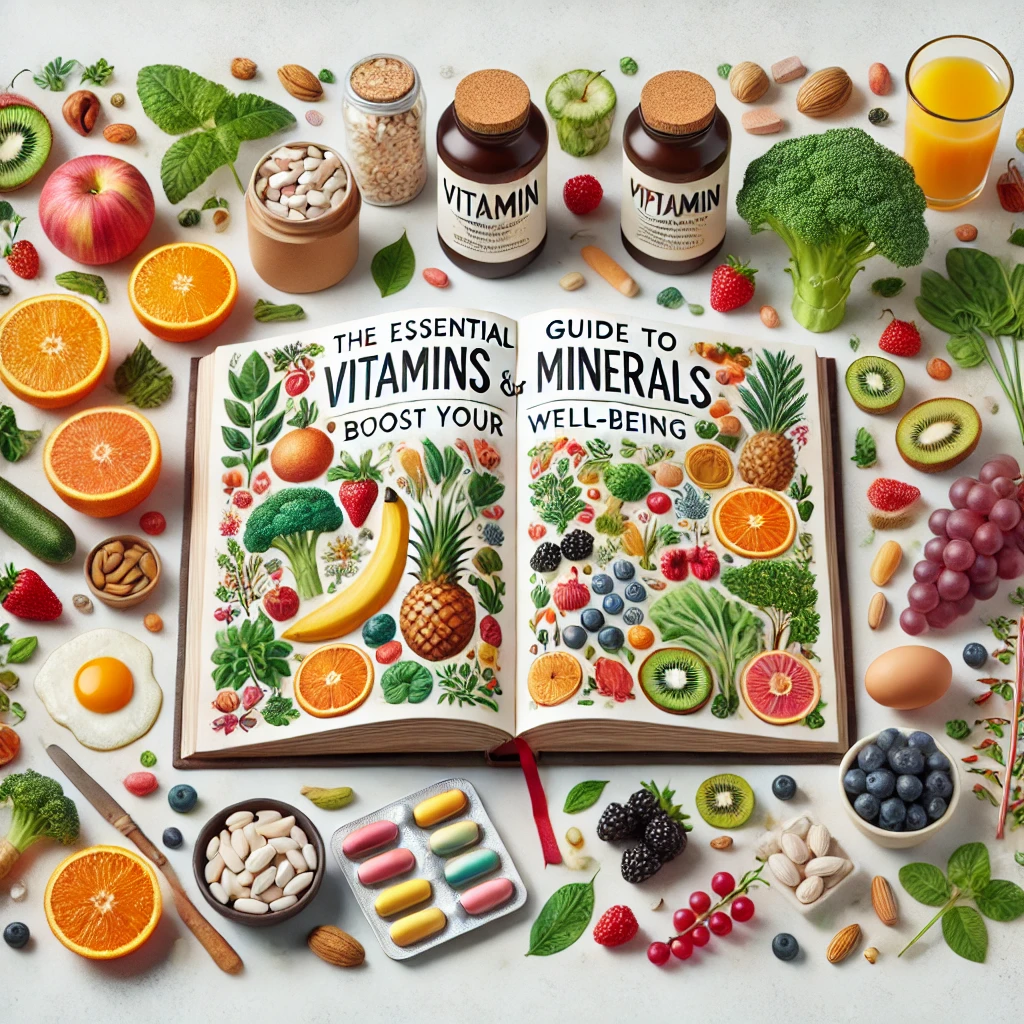Ever wonder how vitamins and minerals impact your well-being? From boosting your immune system to keeping your body running smoothly, these essential nutrients play a big role in your health. Let’s explore the world of vitamins and minerals, learn about their benefits, where to find them, and how to make sure you’re getting enough.
Why Vitamins and Minerals Matter
Vitamins and minerals are nutrients our body needs to work properly. They help with everything from growing and developing to staying healthy and strong.
Important Vitamins
Vitamin A: Good for your eyes, immune system, and skin.
Vitamin B Complex: Helps with energy, brain function, and making red blood cells.
Vitamin C: Boosts your immune system, helps your skin, and acts as an antioxidant.
Vitamin D: Essential for strong bones and a healthy immune system.
Vitamin E: Protects your cells from damage.
Vitamin K: Important for blood clotting and bone health.
Key Minerals
Calcium: Crucial for strong bones and teeth.
Iron: Needed for making blood and transporting oxygen.
Magnesium: Supports muscles, nerves, and bone health.
Potassium: Helps with heart, muscle, and nerve function.
Zinc: Important for immune function, wound healing, and DNA production.
How to Get Vitamins and Minerals from Your Diet
Natural Food Sources
Eating a variety of foods is the best way to get the vitamins and minerals your body needs.
Fruits and Vegetables: Rich in vitamins A, C, E, and K, plus minerals like potassium and magnesium.
Whole Grains: Packed with B vitamins, iron, and magnesium.
Dairy Products: Great sources of calcium, vitamin D, and potassium.
Lean Proteins: Provide B vitamins, iron, zinc, and magnesium.
Nuts and Seeds: Full of vitamin E, magnesium, and zinc.
Supplements
Eating a variety of foods is a great way to get the vitamins and minerals our body needs. However, even if we eat a balanced diet and choose the best products, our bodies might not always assimilate vitamins and minerals effectively. For this reason, it is important to consider using supplements to fill any nutritional gaps.
Always remember to talk to your doctor before starting any supplements to make sure they’re safe and necessary for you.
Tips for Better Absorption
Eating the right foods to get your vitamins and minerals is important, but did you know that how you eat them can change how well your body uses these nutrients? Here are some simple tips to help your body absorb vitamins and minerals better, making sure you get the most out of your healthy diet.
Pair with Fat: Vitamins A, D, E, and K are best absorbed when eaten with fat.
Timing: Some vitamins and minerals are absorbed better at different times of the day. For example, taking calcium at night can be more effective.
Avoid Interference: Certain foods and drinks, like coffee and tea, can block the absorption of some nutrients like iron. Try to consume them separately.
A great piece of advice from my dietitian was to take my espresso at least 2 hours after eating my meal.
Common Deficiencies and Their Impact
Common Deficiencies
Vitamin D: Can cause bone problems like osteoporosis.
Iron: Can lead to anemia, causing tiredness and weak immune function.
Vitamin B12: Often low in vegetarians and vegans, leading to anemia and nerve problems.
Magnesium: Can cause muscle cramps and mental health issues.
Health Impacts
Getting enough vitamins and minerals can prevent chronic diseases, boost your immune system, and improve your overall quality of life. On the other side, deficiencies can cause serious health issues, showing just how important it is to eat a balanced diet.
Knowing how important vitamins and minerals are for your health is the first step toward feeling better. By eating a variety of nutrient-rich foods and considering supplements if needed, you can make sure your body gets what it needs to stay healthy.
Remember about regular check-ups and blood tests which can help determine if you have any deficiencies.
I wish you all the best😊 Stay healthy!





